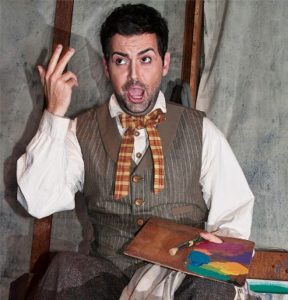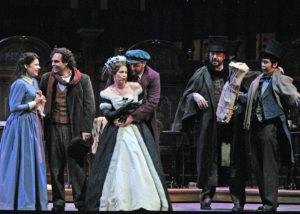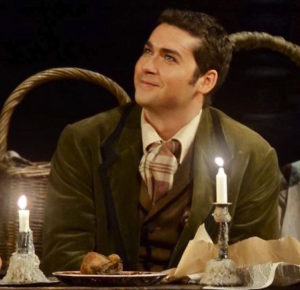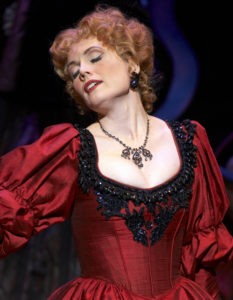Of all the various subjects that fascinate me, one that’s recently caught my attention is the Myers-Briggs Type Indicator. For anyone who doesn’t know, this system of psychological analysis was developed in the 1940s by Katherine Cook Briggs and her daughter Isabel Briggs Myers, based on the theories of Carl Jung. It proposes that there are sixteen different psychological “types”, based on four preferences: “Extraversion (E) vs. Introversion (I),” “Intuition (N) vs. Sensing (S),” “Thinking (T) vs. Feeling (F),” and “Judging (J) vs. Perceiving (P).” According to theory, every person chiefly operates by a certain combination of these factors, which determine the way in which that person comprehends the world.
These are the definitions of each preference:
Extraversion (E) vs. Introversion (I): Looking outside first vs. looking inside first. Extraverts prioritize the world outside themselves and the ways in which others view them, while Introverts prioritize their inner thoughts, emotions and knowledge. This is completely different from social extraversion vs. introversion: it’s not about how social you are, but your way of thinking.
INtuition (N) vs. Sensing (S): Focusing on concepts and abstract ideas, which you use to understand literal facts and experiences, vs. focusing on literal facts and experiences, which you use to understand facts to understand abstract concepts.
Thinking (T) vs. Feeling (F): Focusing first on pragmatic use vs. focusing first on emotion meaning. This has nothing to do with how smart or how emotional you are. It’s about whether you evaluate things and people based on their practical use or based on their emotional meaning – this includes how you evaluate yourself.
Judging (J) vs. Perception (P): Planning and acting first vs. exploring and responding. Judgers take action based on principles and then observe the results, while Perceivers observe specific circumstances first and then taking action in response to their observations.
The sixteen possible “types” are as follows: ENTJ, INTJ, ESTJ, ISTJ, ESFJ, ISFJ, ESFP, ISFP, ESTP, ISTP, ENTP, INTP, ENFP, INFP, ENFJ, and INFJ.
Besides their four main preferences, each of these types also has four “cognitive functions” in a specific order. The functions are as follows:
Extraverted Intuition (Ne): Observing patterns and imagining possibilities outside of yourself – associated with exploration, imagination, and a strong sense of “what could be.”
Introverted Intuition (Ni): Envisioning patterns and possibilities based on inner knowledge – associated with “big picture” visions, perspectives and a strong sense of “what will be” or “what should be.”
Extraverted Sensing (Se): Observing literal external facts and experiences – associated with the five physical senses, keen observation skills and focus on the present moment.
Introverted Sensing (Si): Using inner knowledge of literal facts and past experiences to understand the present – associated with memory, knowledge of rules and focus on tradition and duty.
Extraverted Feeling (Fe): Taking emotionally meaningful action based on external cues – associated with harmony, social skills, focus on the group and understanding other people’s emotions.
Introverted Feeling (Fi): Gathering data and finding personal emotional meaning in it – associated with authenticity, reflection, strong core values and understanding your own emotions.
Extraverted Thinking (Te): Taking logically useful action based on external cues – associated with efficiency, drive, decisiveness and seeking to control your external environment.
Introverted Thinking (Ti): Gathering data and finding logic and usefulness in it – associated with analysis, accuracy, perfectionism and thirst for knowledge.
Of course it’s been argued that this isn’t real science. How can every person in the world be pigeonholed into just sixteen personality types, especially when behaviors change depending on different situations? Besides over the years the definitions of each factor have become shaky, varying from MBTI test to MBTI test, and often being applied with gross oversimplification and stereotyping. Still, there’s no denying that this system has some real validity. Countless people who’ve discovered it have thoroughly recognized themselves in one of the types and been able to use the system to understand themselves better than they ever did before. That’s certainly how I felt when I discovered the website 16 Personalities, read the various type profiles, took the free personality test, and got the unsurprising result of “ISFP” (Introverted Sensing Feeling Perceiver). But my favorite way to use this system, which countless other people share, is to use it to analyze fictional characters. And after seeing so many people on the Internet using it to analyze characters from pop culture, I thought to myself, why not use it to analyze my beloved opera characters too?
As the first opera characters to analyze, I chose the six young leading characters from the ever-beloved La Bohéme. Keeping the above definitions of each cognitive preference in mind, I reread the opera’s libretto and evaluated the “personality” of each character’s music. The entire process brought me new, sometimes surprising insights into every character and gave me new appreciation for Puccini, Giacosa and Illica’s art of characterization! As much as I’ve always loved the music of Bohéme, I used to think its characterizations were thin. I viewed the four male bohemians as interchangeably witty, impetuous figures distinguished mainly by their different voice types and love interests (or lack thereof), Musetta as just a caricatured “tart with a heart,” Mimí as a one-dimensionally shy, sweet “angel,” and the two couples as having more or less the same relationship, Rodolfo and Mimí just slightly more tender than Marcello and Musetta. But now, having analyzed them in terms of typing, I can appreciate the subtleties of each characterization. Not only are the six characters indeed dimensional people and distinct from each other, but each of their personality types perfectly suits their individual professions or artistic vocations!
My analysis is based on the guidelines I’ve found from various MBTI websites: 16Personalities, PersonalityHacker.com, PersonalityGrowth.com, and an unconventional favorite of mine, ALittleBitOfPersonality.com, which technically isn’t MBTI but a unique typing system derived from it that seeks to avoid the stereotyping that MBTI has spawned over the years.
Here are the results of my analysis:
Mimí: ISFP (“The Artist”/“The Adventurer”/“The Composer”/“The Explorer”)
Introverted Feeling (Fi): This might seem obvious. With her quiet, gentle nature, the understated sweetness of most of her music, the solitary life she leads until she meets Rodolfo, and her shyness in their meeting scene, Mimí seems every inch a social introvert. But more importantly, she’s a cognitive Introvert as well. Unlike Musetta, or all the male bohemians except Colline for that matter, she’s not an attention-seeker, but finds fulfillment in her own private world. By turning inward instead of conforming to the outside world’s perspective, she finds just as much meaning and joy in silk flowers, sunrises and the scent of roses as in anything more conventionally exciting. She’s every inch a Feeler too. She loves flowers, sunlight, etc., with a passion, not because they’re of any practical use to her, but because she finds emotional meaning in them. She doesn’t love Rodolfo because he does anything useful for her (the fact that he can’t provide for her physical needs is an important plot point and he makes a royal mess of providing for her emotional needs too), but just because she finds him lovable and because he gives her meaning by loving her. When it’s clear that the most useful course of action is to leave him, she still puts it off, and in the end she leaves the viscount’s wealth and practical comforts to die in poverty, but with her love. Her Introverted Feeling shows in her suffering too. In general her pain is private, as she “sings and smiles” to hide her illness from Rodolfo, but when she reaches her breaking point, pouring out her anguish to Marcello and then sobbing uncontrollably at the realization that she’s dying, she holds nothing back, with no concern for whether her emotions are “unseemly” or not. She also decides entirely on her own (a) to turn to Marcello for advice after Rodolfo leaves her, (b) to eavesdrop on Rodolfo and learn his side of the story, (c) to take up with the viscount, and ultimately (d) to leave viscount and go back to Rodolfo. As an Introverted Feeler, she always follows her own heart.
Extraverted Sensing (Se): In the words of her counterpart in RENT, Mimí lives “no day but today,” and fittingly for a seamstress (a physical, visual profession), her focus is on the literal world in the here-and-now. Once again, compare the text of “Mi chiamano Mimí” to “Che gelida manina.” While Rodolfo’s aria revolves around his dreams, fantasies and hope for love, i.e. concepts, Mimí’s revolves around the physical things she cares about: her sewing, flowers, spring, the sun, etc. I’ve sometimes heard “Mi chiamano Mimí” disparaged as an example of opera’s “ridiculousness,” because such a beautiful, tender melody is “wasted” on mundane subject matter, but those amateur critics are missing the point both of Mimí’s character and of opera in general. Those “mundane” things are what she loves and lives for. Nor does she ever turn Rodolfo or their love into a symbol the way he frequently does with her, but stays focused on who he really is, the things he does, and their lived experiences together. Compare their “addio”s as they lament their pending separation in Act III: his “Farwell, dreams of love” vs. her “Farewell, sweet awakenings in the morning,” and the fact that she remembers his jealousy, while he seems to forget that their love was less than idyllic. Even her dying words are focused on a physical sensation, the warmth of her hands in Musetta’s muff.
Introverted Intuition (Ni): Despite all of the above, Mimí is capable of abstract thinking too. She doesn’t just love her flowers for their beauty; they speak to her of love and dreams. In the Act II café scene, as all the bohemians make assorted philosophical remarks about love, she also reveals a clear, streamlined, idealistic vision of what she believes love is and what it should be.
Extraverted Thinking (Te): Mimí rarely makes plans, but can make them when she needs to, and though she usually lets her feelings take her where they may, she’s capable of being decisive and orderly too. We see this in her Act III aria, when she methodically plans out her breakup with Rodolfo and gives him instructions for packing up her belongings. Of course just moments later, she decides not to leave him yet after all: her dominant Fi wins in the end.
It’s no wonder that Mimí’s suffering tends to cause me more emotional pain than those of other, more tragic operatic heroines. She shares my personality type. I can so easily imagine myself experiencing what she does and feeling the way she feels. It’s also no wonder that falls in love with a bohemian artist and feels so at home among them. As an ISFP, she has the quintessential artistic spirit. She displays all the best hallmarks of the type – warmth, gentleness, love of beauty, idealism, living in the moment, and eagerness to treasure every small joy. We also see the deep sensitivity and vulnerability in her that (as I can vouch) ISFPs are prone to, as well as their peacemaking instinct and aversion to conflict (“Addio senza rancor”). The ISFx habit (for which I can also vouch) of slightly unhealthy self-effacement is strong in her too. We see this in her unconditional forgiveness toward Rodolfo, even when she sadly agrees it’s best they part, and in the way she constantly downplays her illness as “nothing,” even pretending on her deathbed that it’s “only a little cough.” This personality type might also explain that aspect of her character that so often befuddles audiences: how such a sweet, gentle and self-effacing girl can also be the flirt Rodolfo claims she is in Act III. Even at their shyest and most gentle, ISFPs are fun-loving, sensual and can be prone to impulsiveness. I’m no flirt, but the same instincts manifest in me in different ways.
Rodolfo: ENFP (“The Inspirer”/“The Campaigner”/“The Champion”/“The Standard-Bearer”)
Extroverted Intuition (Ne): Now it’s easy to see that Rodolfo is a social extravert, thriving as he does with his boisterous group of friends, shamelessly coming on to Mimí within moments of meeting her, and proclaiming his passions (at least when they’re happy) for all to hear. Just listen to the flamboyant romanticism of his self-defining aria “Che gelida manina,” or the playful rhymed couplets he publicly improvises to introduce Mimí to his friends. But he’s a cognitive Extravert too, and specifically an Extraverted Intuitive. While Mimí thrives on the small physical pleasures her life offers, Rodolfo rarely gives his physical surroundings much attention except to complain about them, but thrives on his imagination and on things he envisions beyond his ordinary life (his “soul of a millionaire” in “dreams and fancies and castles-in-air”). Throughout the whole opera, he thinks in abstract concepts and poetic metaphors. His play is being burned for warmth? He jokes that the ardor of the love scenes is warming the room, then “going up in smoke.” Mimí leaves her bonnet as a memento for him when they break up? He secretly talks to it like a confidante who “knew [their] happiness.” And when it comes to love, the abstract concepts never stop! He makes constant sweeping statements about the nature of love, either idealistic or cynical depending on his mood, and as I mentioned above in Mimí’s outline, he also tends to view both Mimí herself and their romance in symbolic terms. He sees her as the embodiment of all his romantic poetry and dreams (“In you I see the dream I want to dream forever,” “…I am the poet, she is poetry,” “Farewell, dreams of love”), and later views the end of their relationship as symbolizing the end of his youth. He has a constant eye for external possibilities in the real world too, as we see in his skilled seduction of Mimí, as he quickly takes in the situation and improvises both how to keep her from finding the key and how to start a conversation, and when he realizes that Mimí is dying long before she does. He couldn’t be more of an Extraverted Intuitive if he tried.
Introverted Feeling (Fi): Rodolfo is a “true poet,” who looks for meaning in everything and who tends to be absorbed in his own dreams, fantasies, and above all, feelings of love. He leads a penniless bohemian life because he refuses to live only by hard, mundane work with no joy or meaning in it. (“I don’t believe in the sweat of the brow!”) Its also clear both from his own words and his friends’ comments (“…his verses are not a beginner’s”) that he’s spent most of his young life thinking, dreaming and writing about love, but with no hint that he’s ever really experienced it before Mimí. He loves Mimí for the meaning he sees in her and shows his love not by “useful” acts, but with beautiful language and the gift of a bonnet… bought with money he really should have saved to pay for dinner. He eventually pays the price for such a meaning-driven life when he finds himself useless in the face of Mimí’s declining health. Like Mimí, he’s an emotional person, but it’s his emphasis on meaning that makes him a true Introverted Feeler.
Extraverted Thinking (Te): When Rodolfo realizes that practical action needs to be taken, he does it decisively and, when he realizes he can’t provide for Mimí in her illness, all too harshly. Hence his attempts to break up with her under the pretext of jealous rages, which, based on Mimí’s quotes, don’t feature sarcasm and cutting insults the way Ti-users Marcello and Musetta’s spats do, but brutal bluntness: “You’re not for me!” “Find yourself another lover!” “It’s over!” But this isn’t his natural instinct, and accordingly, it doesn’t work. Only after he and Mimí embrace their natural Fi preference and acknowledge their love and their pain at having to separate are they really able to break up.
Introverted Sensing (Si): When Rodolfo is unhappy, he mulls over memories of bygone better times, fixating on the physical details (e.g. Mimí’s tiny hands, fragrant hair and snow-white neck), yet often forgetting that the past wasn’t always rosy. Also, despite his free bohemian spirit, he never fully detaches himself from traditional social mores: at least not regarding female sexuality, as we see in his judgmental remarks about Musetta and in his jealousy toward Mimí.
Like so many fictional ENFPs, male and female (Anne of Green Gables, Little Women‘s Jo March, West Side Story‘s Tony, the title character of the cartoon Steven Universe, etc.), Rodolfo has a classic xNFP’s emotional sensitivity and romantic dreamer’s spirit, which is what makes him such an ardent, appealing lover. This is also true of INFPs, a la Shakespeare’s Romeo or Armand in La Dame aux Camelias/Alfredo in La Traviata. Yet unlike a more reserved, serious INFP, Rodolfo combines that spirit with sunny playfulness, mischievous cunning and shameless exuberance, which aid him even further in sweeping Mimí off her feet. At the same time, however, his xNFP sensitivity gives him a potentially nasty temper and reluctance to face his own flaws. In him we arguably also see a trait that A Little Bit of Personality claims is common among ENFPs: the fear that their weak Si and Te makes them incompetent and insignificant. His poverty and lack of artistic success can only enhance this fear, especially in the face of Mimí’s illness; hence his jealousy when richer men show interest in her and his running from his failure to provide for her. Under extreme stress, all personality types tend to overuse their lower, weaker functions: in the case of ENFPs, they fall into the grip of their Si and Te, which makes them be uncharacteristically harsh and aloof, more like unhealthy ISTJs or INTJs than their true selves. Yet just as characteristic of the type is all the warmth, passion, humor, happy spontaneity and artistic heart that Rodolfo displays at his best.
Marcello: ESTP (“The Entrepreneur”/“The Doer”/“The Promoter”/“The Spartan”)
Extraverted Sensing: Like Mimí, and appropriately for a painter (another visual, hands-on art form), Marcello lives primarily for the literal, physical here-and-now. His very first lines focus on the physical by remarking on the cold. Throughout the opera, his chief concerns are concrete things like food, warmth, painting, pretty girls, and a style of love that seems to revolve much more around sexual pleasure than the poetic, spiritual ecstasy of Rodolfo and Mimí. Nor does he speak in metaphors nearly as often as Rodolfo: occasionally he does, but rarely without Rodolfo initiating it. Even in their Act IV duet, when he and Rodolfo both express their longing for their absent lovers, their ways of describing that longing are distinctly different: while Rodolfo sings abstractly of beautiful bygone days, lost youth and dead love, Marcello uses the simple visual imagery of his brush refusing to paint any image but Musetta’s face. In both of Rodolfo’s key relationships, his romance with Mimí and his friendship with Marcello, his high-flying Ne is balanced by the other’s present-focused Se.
Introverted Thinking (Ti): Marcello is pragmatic and cunning, as we see most clearly when he tricks Benoit into confessing his marital infidelities and then using them as an excuse not to pay the rent, and he has a sharp, sarcastic wit that turns especially biting when he’s angry. Nor does he ever dwell much on his own feelings the way Rodolfo and Mimí do. Although he loves Musetta very much, he’s not sentimental about their love, preferring to keep their relationship lighthearted and playful, easily (in fact too quickly) ending things the moment they’re not happy, and urging Rodolfo and Mimí to do the same. Despite his tendency to be hot-blooded when he’s jealous, his life is generally a down-to-earth, practical quest for comfort and pleasure.
Extraverted Feeling (Fe): Unlike the Fi-driven Mimí and Rodolfo, Marcello’s emotional focus is almost always outside of himself. This is fitting for a painter, whose art form consists of capturing things he observes on canvas. Although he rarely ponders his own feelings, he’s a keen observer of others’, sometimes even more so than the compassionate Mimí: e.g. his ability to see straight through Rodolfo’s forced display of jealousy in Act II. He also cares a bit too much about his own reputation, as we see in his rage at being “made a laughingstock” by Musetta’s flirting with other men.
Introverted Intuition (Ni): When Marcello is unhappy, he makes overly sweeping abstract statements of cynicism. For example, when he’s bitter about Musetta leaving him, he declares that love is just a “false utopia,” that all women merely “stand and watch” while their men burn with passion, and that Musetta herself is a “bird of prey.” Because abstract philosophizing isn’t his natural instinct, he only really does it in an unhealthy frame of mind, in the bitterest way.
ESTPs often appear in fiction as the best friend or sidekick to the protagonists, providing comic relief with their wisecracking wit and bravado, but also offering true, loyal friendship, as well as valuable street smarts and drive for action. More recent pop culture examples include Ron Weasley in Harry Potter, Joey in Friends, Mushu in Disney’s Mulan, Timon in The Lion King, Rizzo the Rat from the Muppets, Sokka in Avatar: The Last Airbender and Rainbow Dash in My Little Pony: Friendship is Magic. In Marcello, we see many traits that most of these character share: he’s funny, clever and charming, yet has an easily bruised ego and sometimes blistering temper, but can also be a warm, caring, down-to-earth “dad friend” who gives Mimí and Rodolfo much-needed advice. Speaking of “dad friends,” I understand now why Marcello has always reminded me of my own father. My dad is an ENTP: not exactly the same as an ESTP, but not too different either.
Musetta: ESFJ (The Consul”/“The Caregiver”/“The Provider”/“The Cavalry”)
Extraverted Feeling (Fe): Musetta’s life revolves around attracting and relishing other people’s attention. In her flings with rich men, she seems to care less about the money and material goods themselves than she does about basking in the men’s devotion and impressing others with her gorgeous clothes and carriages. As she sings in her famous waltz aria, she can see the subtle yearning in men’s eyes when she passes them in the street (as well as in Marcello’s eyes despite his efforts to feign indifference to her) and she loves it. Her keen observation of others and how they react to her also makes her a skilled manipulator. But of course that’s only one side of Fe’s emotional intelligence: the other side is great compassion, understanding of others’ needs, and selfless caring. Musetta beautifully displays this side when she brings the dying Mimí to Rodolfo and leads everyone in caring for her. Last but not least, while she focuses more on other people’s reactions to her than on her own emotions, she still expresses her own feelings in an effusive, flamboyant way, whether joy, rage, or grief. For this reason in particular I’ve typed her as a dominant Extraverted Feeler
Introverted Sensing (Si): Like Mimí and Marcello, Musetta focuses on the literal world around her: things, activities, and especially people. Nor does she ever fixate on symbolism and pseudo-philosophy. She mainly seems to care about enjoying life as it is and, at her best, bringing the same amount of pleasure to those around her. Also, she seems well-versed in time-honored seductive tricks, such as speaking to one man while really intending her words for another, or pretending her shoe is too tight Furthermore, despite being a maverick by respectable society standards, she’s arguably a very traditional girl of her social class. Grisettes were expected to be “of easy virtue,” available for men’s taking, and to use their girlish charms to improve their fortunes. Musetta plays this role effortlessly and enjoys it too.
Extraverted Intuition (Ne): Musetta has a subtle eye for potentials and possibilities, as we see with the assorted tricks she uses in her efforts to win Marcello back. Then there’s her craving for freedom, which she repeatedly asserts when men try to control her. But at the same time, she always goes back to her familiar life with Marcello, and never chases “castles in the air” the way Ne-dom Rodolfo does.
Introverted Thinking (Ti): Musetta’s cunning shows in her Act II seduction and manipulation. Yet when she’s angry, her Ti manifests in less endearing ways, as she insults the other person in well-chosen terms she knows will hurt them: in Act III, for example, skewering Marcello’s fragile ego by laughing at his jealousy and mocking his artistic failures by calling his a “shop painter.”
It’s no surprise to find that Musetta shares her Myers-Briggs type with the likes of Miss Piggy, Amy March in Little Women, Rachel Green in Friends, Rarity in My Little Pony: Friendship is Magic and Glinda in Wicked. We see common traits in all these characters: poise, charisma, liveliness, a love of beauty and elegance, a love of attention, a natural skill at the game of feminine charm and eagerness to play it, and occasional arrogance, stubbornness and temper, but genuine warmth, kindness and generosity too. That’s Musetta all over.
Colline: INTJ (“The Architect”/“The Scientist”/”The Mastermind”/“The Dragon”)
Introverted Intuition (Ni): Colline is clearly the most socially introverted bohemian, with his bookishness, lack of interest in women and dislike of crowded cafés, not to mention his deep bass voice and the understated plod of his musical leitmotif. More than any of his friends, he seems to deliberately live in his own world, and while he can be witty and playful, he never seems as spontaneous as his friends, but seems to let them drag him along in their hijinks with one foot always in his quieter realm of books and sarcasm. This seems to be a matter of philosophical principle to him. At the same time, he constantly thinks in metaphors and makes connections between his own experiences and the larger world. He doesn’t just dislike crowds, he “hates the vulgar mob like Horace.” His pockets don’t just hold books, they “shelter philosophers and poets like tranquil grottos.” Selling his coat isn’t just a sale, it’s a farewell to a faithful friend. Like Rodolfo but unlike any of his other friends, he naturally seems to focus on abstract concepts and to keep the external world slightly at arm’s length.
Extraverted Thinking (Te): As a philosopher, Colline is the only bohemian whose vocation is aimed not at creating artistic pleasure, but at bringing something of practical use to the world. We also first meet him coming home from trying to do something pragmatically useful for the group, earning money by pawning his books. In Act II, he’s the only bohemian who spends all his money on practical things: a shave, a coat, and books to serve his vocation. As mentioned above, he also dismisses romance as not worth its trouble, and of course when the dying Mimí appears in Act IV, he makes himself useful by pawning his coat. He might not show the street-smart cunning that most of his friends do, but nearly all his actions are still pragmatically useful.
Introverted Feeling (Fi): Beneath his unsentimental pragmatism, Colline is deeply caring. We see this in his half-joking yet sincerely sentimental farewell to his beloved coat, as well as in the very act of pawning the coat for Mimí’s sake and in his urging Schaunard to give Rodolfo and Mimí some time alone. Another Fi trait, which we see throughout, is his indifference to what other people think of him. He proudly wears his shabby old coat, praising it for “never bow[ing] before the rich and powerful” (there’s yet another Fi trait: anti-authoritarianism), and almost never shaves or cuts his hair, jokingly calling the razor “a ridiculous outrage.”
Extraverted Sensing (Se): Despite living largely in the world of his books and “grumbling maxims,” Colline greatly enjoys physical comforts such as good food, wine and tobacco. Yet he still seems less comfortable navigating the physical world than his friends are: for example, his dislike of the crowd at the Café Momus, and his clumsiness when he trips and falls down the dark staircase in Act I. This is typical of an Ni-dom whose Se is underdeveloped.
Colline would be amused and at least mock-proud to know that he shares his Myers-Briggs type with Batman, Sherlock Holmes, Mr. Darcy in Pride and Prejudice, both Dumbledore and Voldemort in Harry Potter, and no shortage of other famous villains and anti-social heroes. Colline is more fun loving than they usually are, but he still shares their intellectual, “outside-the-box” approach to life. And inasmuch as all bohemians have some idealism, he seems to have plenty of classic INTJ cynicism too, based on his disparaging remarks about “the vulgar mob,” rich men, women and shaving, and by the fact that while we never get to see his philosophical writings, Schaunard calls them “grumbling.” It’s no wonder that of the two supporting male bohemians, Puccini and the librettists chose to single Colline out with his own aria. In their introverted way, INTJs always stand out.
Schaunard: ESTP (“The Entrepreneur”/“The Doer”/“The Promoter”/“The Spartan”)
Extraverted Sensing (Se): Just like his fellow ESTP Marcello, Schaunard is focused on the external world and other people, and that focus is on literal, concrete things Music, food, girls, bustling city streets, his friends’ amusing antics, his own acts of resourcefulness… these are the things that interest him, not ideas, symbolism or philosophy. His keen observation of external details is highlighted poignantly in the last Act, when he’s the first to realize that Mimí has died.
Introverted Thinking (Ti): Judging both by his story of killing the parrot and by his haggling with the horn-vendor in Act II, Schaunard is always finding clever way to get what he needs, and doesn’t mind making eccentric or amoral choices as long as they’re useful. His cunning arguably surpasses Marcello’s: Marcello might be the one who gets them out of paying rent, but Schaunard is the one who always brings in actual money and food. Also, like his fellow Thinker Colline, he spends all his Christmas Eve “fortune” on useful things: food, firewood, wine, cigars, and new musical instruments for his profession.
Extraverted Feeling (Fe): Schaunard is constantly entertaining his friends, reacting to them or telling them what to do, and he’s excellent at reading them. See, for example, Act II, where he sees full well that Marcello will eventually give in to Musetta’s charms, which neither Mimí nor Rodolfo seem to expect. Also, like Musetta, he loves attention. Although he shows no interest in romance, he takes pride in his ability to charm women: especially if it serves a purpose, as with the maid who helped him poison the parrot. It’s fitting that as a musician, he’s the only bohemian whose art form involves not just creating, but performing.
Introverted Intuition (Ni): Unlike with Marcello, we don’t see any moody, cynical outbursts of inferior Ni from Schaunard, but we do sense that he bases his overarching view of life on his specific experiences. For example, his teasing remark that Colline would throw away all his philosophy if he found the right pretty girl. Colline shows no such inclination, but Schaunard can’t seem to imagine that any man would really and truly favor philosophy over pleasures of the flesh.
In this particular opera, the baritone voice seems to signify the ESTP personality type, since Schaunard and Marcello share both. They’re still distinct characters from each other – Schaunard is less moody and temperamental than Marcello, but also less down-to-earth and more flamboyant – but their core approach to life is the same. This probably explains why they’re good friends, although it’s interesting that they’re not best friends, but that Marcello seems closer to Rodolfo while Schaunard seems closer to Colline. Maybe this shows that they’re both most drawn to people different from themselves.
I won’t write full profiles for Benoit and Alcindoro, but if I had to type them, I’d say that the more laid-back, fun-loving and easily swayed Benoit is an ESFP, while the fussy, pompous Alcindoro is an ESTJ.
Of course Puccini, Giacosa and Illica never specifically set out to give the characters these cognitive/personality types. Myers and Briggs published their handbook nearly 20 years after Puccini’s death! Still, if you look for the types, they’re right there, consistent and convincing.
I can’t wait to use this method to analyze more opera characters and discover more fresh insights into the operas I love.








Tepdora
March 2nd, 2018 at 17:59
I am very similar to Mimi.We have the same type !I do love Mimi a lot,she is adorable !
Teodora
March 2nd, 2018 at 18:01
I also love La Boheme